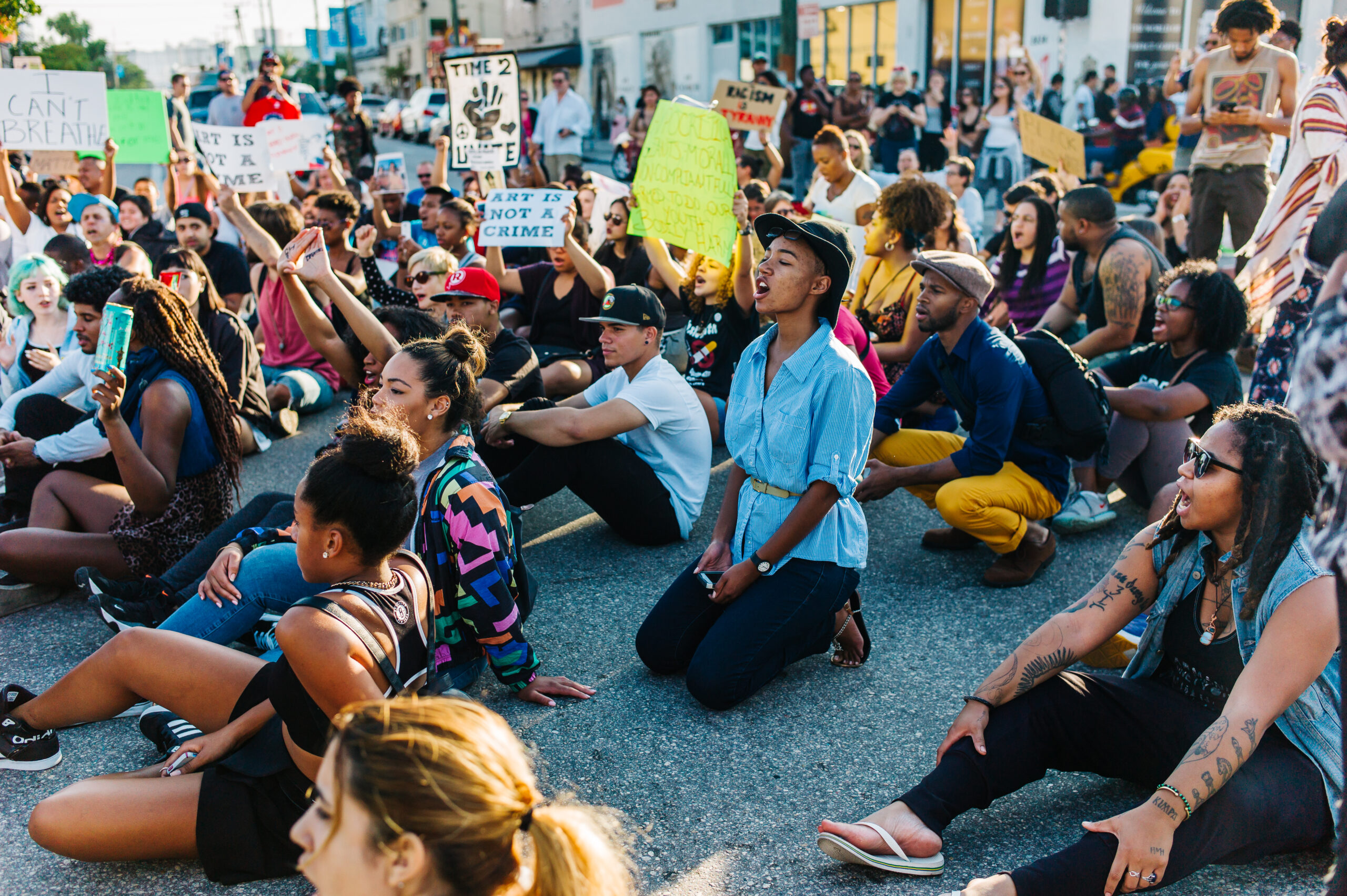The Link Between Opposition to Abortion and Denying Structural Racism

In early May 2022, a leaked draft decision from the U.S. Supreme Court indicated that they may be likely to overturn the landmark 1973 decision in Roe v. Wade, which affirms a constitutional right to an abortion under certain circumstances. According to recent data from PRRI, more than six in ten Americans (61%) oppose overturning Roe v. Wade, while just over one third of Americans support overturning it (36%).
Though often overlooked, there is a strong link between attitudes about abortion and attitudes about structural racism. Specifically, those who oppose the legality of abortion are significantly more likely than those who support the legality of abortion to deny the existence of systemic racism. Around two-thirds or more Americans who support overturning Roe v. Wade agree that “racial minorities use racism as an excuse more than they should” (70%). Nearly two-thirds (64%) disagree that “over the past few years Black Americans have gotten less that they deserve,” and 64% disagree that “generations of slavery and discrimination have created conditions that make it difficult for Black Americans to work their way out of the lower class.” Americans who oppose overturning Roe v. Wade are much less likely to concur with these views (47%, 42%, and 40%, respectively).
Around half of Americans who support overturning Roe do not acknowledge advantages that accrue to white Americans because of their race. A majority (53%), in fact, agree that discrimination against white Americans has become as big of a problem as Black Americans and other minorities. A slim majority (51%) disagree that a Black person is more likely than a white person to receive the death penalty for the same crime, and 50% disagree that white people in United States have certain advantages because of the color of their skin. Only around three in ten Americans who oppose overturning Roe concur (33%, 29%, and 27%, respectively).

Among White Americans
The one-third of white Americans who favor overturning Roe v. Wade (34%) are even less likely to acknowledge the effects of racism in America. Around three-quarters or more of white Americans who favor overturning Roe say that racial minorities use racism as an excuse more than they should (80%) and disagree that Black Americans have gotten less than they deserve (76%) or that generations of slavery and discrimination have had lasting effects on Black Americans’ success (74%). Around two-thirds of white Americans who support overturning Roe v. Wade disagree that Black Americans are more likely than white Americans to get the death penalty for the same crime (66%), and that white people have certain advantages because of the color of their skin (63%). Similar numbers agree that discrimination against white Americans is as much of a problem as discrimination against people of color (63%). Four in ten whites who support overturning Roe v. Wade say that Black Americans could be as well off as white Americans if they just tried harder (43%), or that racial problems are rare (43%).
Among White Christian Americans
White Christian groups who support overturning Roe v. Wade, particularly white evangelical Protestants, are even more likely than white Americans overall to fail to recognize structural racism and its effects on Black Americans and other people of color. White evangelical Protestants (52%) are more likely than white Catholics (39%), white mainline (non-evangelical) Protestants (36%), or white religiously unaffiliated Americans (26%) to support overturning Roe v. Wade.
Among those who support overturning Roe v. Wade, nearly nine in ten white evangelical Protestants (87%) say that racial minorities use racism as an excuse more than they should, compared to 81% of white mainline Protestants, 69% of white Catholics, and 69% of white religiously unaffiliated Americans. Furthermore, 79% of white evangelical Protestants, 78% of white mainline Protestants, 77% of white Catholics, and 64% of white religiously unaffiliated Americans who support overturning Roe disagree with the idea that generations of slavery and discrimination have created conditions that make it difficult for Black Americans to work their way out of the lower class.
With only a single exception, majorities of all white Christian groups who support overturning Roe v. Wade fall on the side of denying or failing to recognize the effects of systemic racism. Fewer white Christian groups who support overturning Roe v. Wade agree that racial problems in the United States are rare, isolated situations (49% among white evangelical Protestants, 49% of white mainline Protestants, 36% of white Catholics, and 46% of white religiously unaffiliated Americans).


